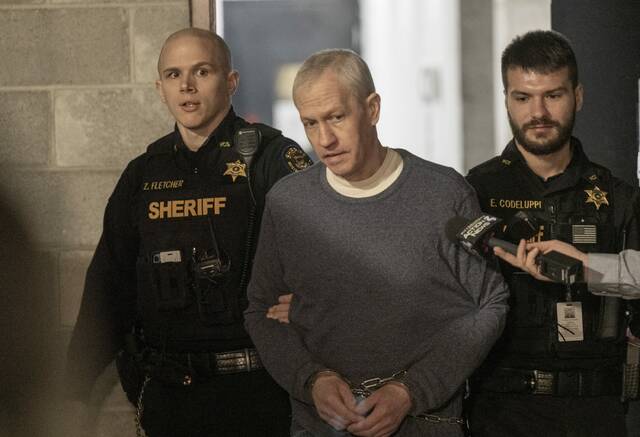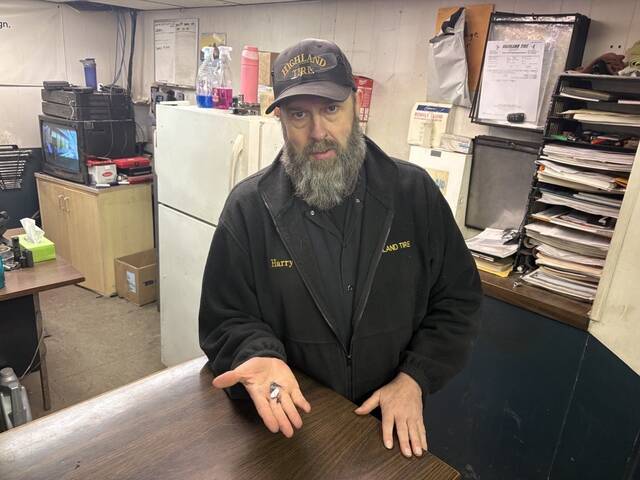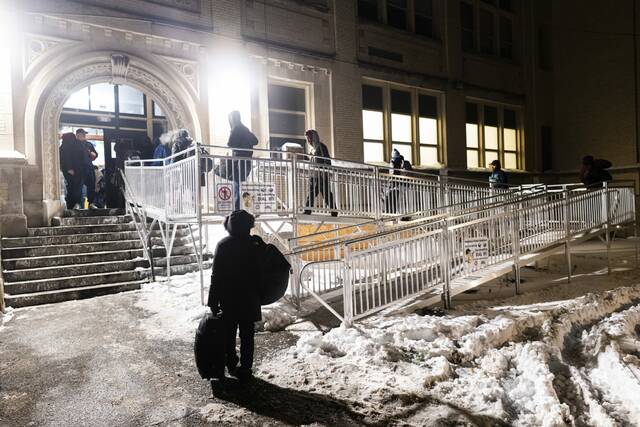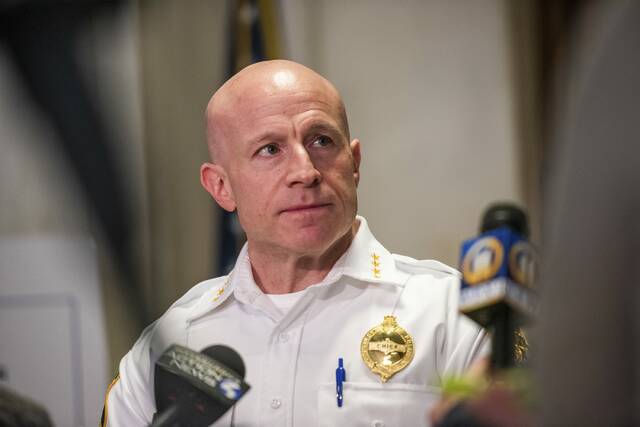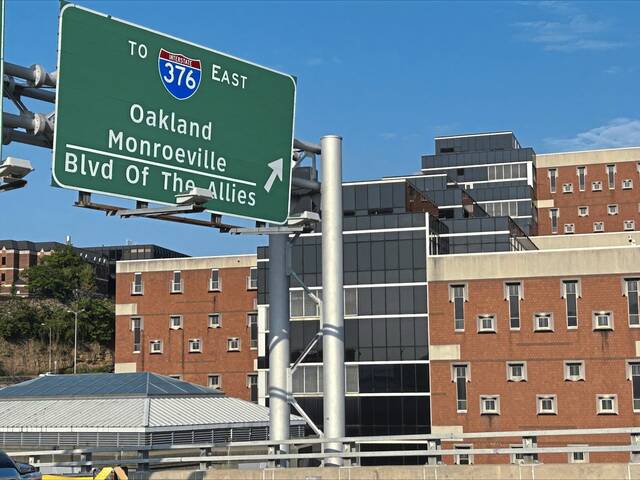The federal government is looking to expand its law enforcement presence in 20 U.S. cities, including Pittsburgh.
A competitive lease proposal from Sept. 16 reveals that the federal government is seeking office space large enough for 70 workers “appropriate for law enforcement administrative operations” in each of 20 cities.
This comes as President Donald Trump broadly takes aim at Democrat-led cities, calling them unsafe, and has ordered the deployment of National Guard troops as law enforcement in major cities like Washington, D.C., Portland, Oregon, and Chicago.
The Columbus Dispatch has reached out to the General Services Administration for more information. The Seattle Times first reported on Spokane, Washington, and Boise, Idaho, making the list on the lease proposal and the GSA did not disclose to the Times what law enforcement agency would occupy these offices.
The Washington Post reported in September that Immigration and Customs Enforcement is seeking new office spaces in hundreds of places across the U.S., according to sources who spoke anonymously with the Post and records the outlet obtained.
Many, but not all, of the 20 cities that made the list on the September lease proposal have Democratic mayors.
Besides Pittsburgh, the full list comprises: Birmingham, Alabama; Charleston and Columbia, South Carolina; Columbus, Ohio; Des Moines, Iowa; Grand Rapids, Michigan; Louisville, Kentucky; Milwaukee, Wisconsin; Oklahoma City, Oklahoma; Raleigh, North Carolina; Richmond, Virginia; St. Louis, Missouri; and six cities in Florida: Fort Lauderdale, Tampa, Sunrise, Jacksonville, Fort Myers and Naples.
Ohio House Minority Leader Dani Isaacsohn, D-Cincinnati, said it’s dangerous to politicize keeping communities safe.
“Why on earth would they only target places that the President views are politically not aligned with him?” Isaachsohn said. “They’re tired of people playing politics with what should be bread and butter issues, like keeping our communities safe.”
Meanwhile, Ohio House Speaker Matt Huffman, R-Lima, said he supports federal law enforcement.
“If the federal government says we need to have space in Columbus or wherever else it is for those purposes, then they should be doing that,” Huffman said. “I’m certainly not going to criticize it. I applaud it and encourage it.”
Multiple federal law enforcement agencies currently have field offices in Columbus, including ICE, the FBI and the Bureau of Alcohol, Tobacco, Firearms and Explosives.
Asked this week about Trump deploying the National Guard to cities and broadly characterizing cities as dangerous, Columbus Mayor Andrew Ginther’s deputy chief of staff for communications, Jennifer Fening, told The Dispatch:
“Mayor Ginther believes that whether you’re in Columbus, Portland, Chicago or any major American city, it’s mayors, local law enforcement and community partners who possess the wisest insights for fighting crime and making cities safer. We hope that federal leadership will continue to respect mayors and police chiefs’ understandings of their cities.”
Fening told The Dispatch on Oct. 8 that the mayor’s office had not been contacted by federal officials about an expansion of federal law enforcement activities here.
“It’s not a productive exercise to speculate at future actions of the federal government. Mayor Ginther will continue to lead and protect the residents of Columbus,” she said in an email.
Fening said Columbus is the safest it has ever been and homicides are at a more than 20-year low even as the city has grown. She said Columbus consistently works with state and federal law enforcement to take dangerous criminals off the streets.
Fening also reiterated Columbus’ policy on immigration enforcement, first set by Ginther in 2017 during Trump’s first term. Columbus does not use city resources, including police, to pursue people based solely on immigration status. The city only participates in immigration investigations when a crime has been reported.



